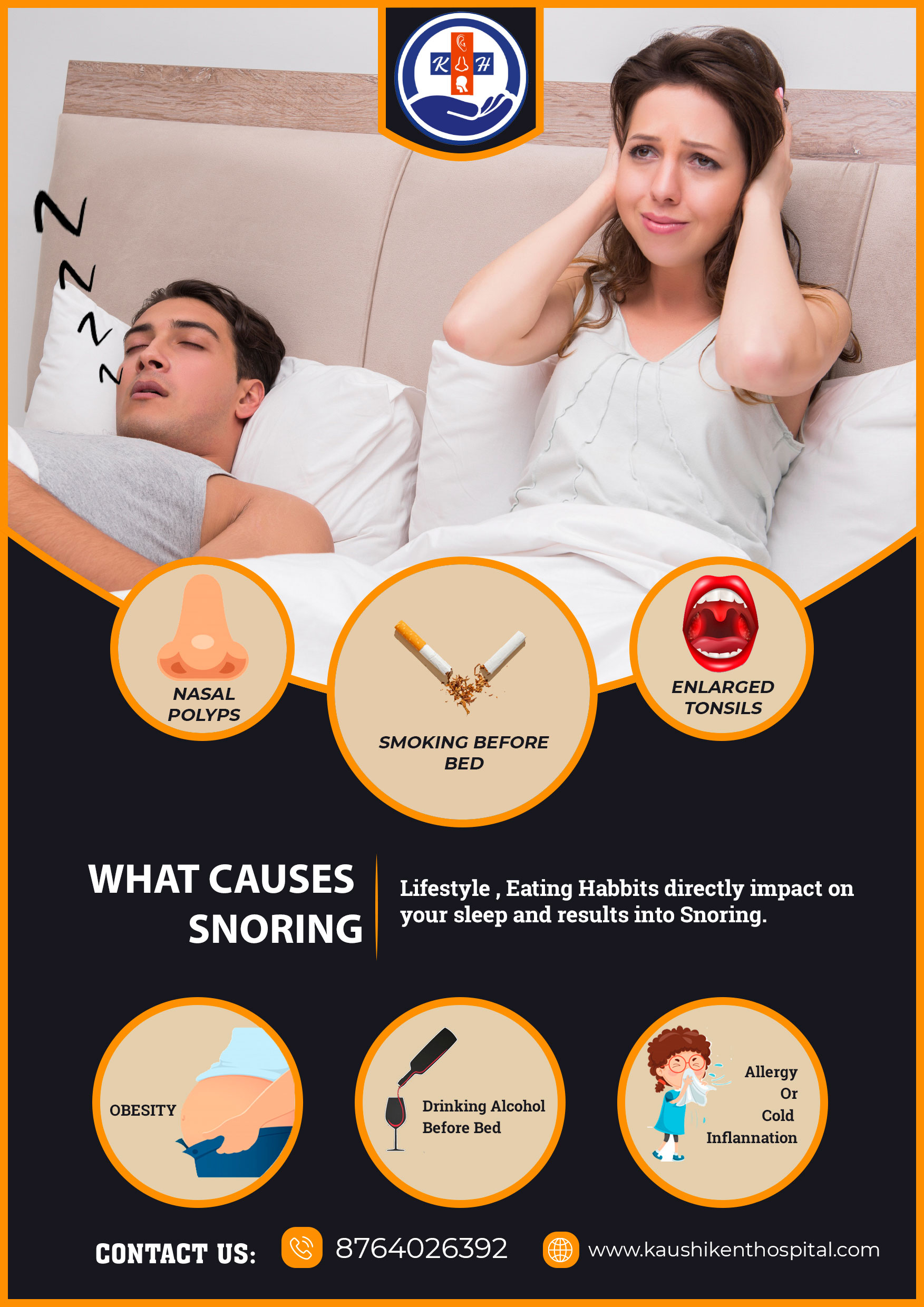Snoring / Sleep Apnea
झटके से खुल जाती है नींद? Sleep Apnea हो सकती है वजह
What is Sleep Apnea?
पूरी रात सोने के बाद भी सुबह के समय थकान महसूस होना, दिनभर आलस बने रहना, मानसिक समस्याएं होना, डाइजेशन ठीक से ना होना, यादाश्त पर असर, कब्ज बने रहना इन सबकी एक वजह स्लीप एपनिया भी हो सकती है।
स्लीप एपनिया एक ऐसी दिक्कत है, जिसमें पीड़ित व्यक्ति की सांस उस समय कुछ देर के लिए रुक जाती है, जब वह सो रहा हो। इस दौरान उनके शरीर को पूरी ऑक्सीजन नहीं मिल पाती है। सांस टूटने से उनकी आंख खुल जाती है और उठते ही वह तेजी से हांफने लगता है। इस समस्या से ग्रस्त कुछ लोग ऐसे भी होते हैं, जिन्हें जागने पर इस बात का अहसास भी नहीं होता कि सोते समय उन्हें सांस नहीं आ रही थी इसलिए वे तेजी से सांस ले रहे हैं और अजीब घबराहट महसूस कर रहे हैं।
स्लीप एपनिया कुछ हद तक खर्राटे लेने की तरह होती है, जिसमें कई लोगों को यह पता ही नहीं चल पाता कि सोते समय वे खर्राटे ले रहे थे। अगर स्लीप एपनिया का समय रहते पता ना चले तो यह कई दूसरी परेशानियों का कारण बन सकता है। जैसे, पूरी रात सोने के बाद भी सुबह के समय थकान महसूस होना, दिनभर आलस बने रहना, मानसिक समस्याएं होना, डाइजेशन ठीक से ना होना, यादाश्त पर असर, कब्ज बने रहना साथ ही हर्ट फेलियर जैसी स्थिति के लिए कंडीशंस तैयार करने की वजह भी हो सकता है।
स्लीप एपनिया के पारंपरिक उपचार में रात में CPAP मास्क पहनना शामिल है। लेकिन कुछ लोग इस मास्क को लगाकर सोने में सहज नहीं होते। इन लोगों को अपनी रोजमर्रा की आदतों में बदलाव करना चाहिए। इनमें सबसे पहला नंबर आता है अपने वजन पर नियंत्रण रखना। हर रोज योग करना और हो सकते तो आधा घंटे की वॉक भी रोज करें। सोने की जगह और पॉश्चर बदल सकते हैं। एल्कोहॉल और स्मोकिंग से दूर रहें। अगर तब भी आराम महसूस ना हो तो डॉक्टर से जरूर मिलें।
Heart diseases & Sleep Apnea
It becomes difficult to define the relationship between sleep apnea and heart disease, as people with sleep apnea often suffer from other coexisting diseases as well, primarily cardiovascular problems such as high blood pressure, heart failure, atrial fibrillation and stroke. In some situations, fat deposits around the upper airway also become an obstruction to breathing. This disorder is commonly seen in overweight, middle aged people, but sometimes it can also be seen in children and people who are not overweight. People tend to have other heart risk factors such as heart failure or heart disease. Having these other risk factors already puts a person at risk of sudden cardiac death. Sleep apnea simply makes the person more vulnerable.
Sleep apnea has over time emerged as a proven cause of abnormal heart rhythms or cardiac arrhythmias. Many heart arrhythmias are harmless. Occasionally everyone experiences irregular heartbeats, which may feel like a racing heart or fluttering. Some arrhythmias, however, especially if they bend too far from a normal heartbeat or result from a weak or damaged heart, may cause upsetting and even potentially fatal symptoms.
Approximately 50 per cent of patients with atrial fibrillation are found to suffer from sleep apnea. It gradually results in the deterioration of the heart muscles pumping ability, leading to congestive heart failure. Fortunately, treating sleep apnea in these patients greatly improves the chance of successfully treating heart arrhythmia and strengthens the heart muscle, thereby reducing the risk of heart attack or stroke.
Obstructive Sleep Apnea Treatment in India
When it comes to treating milder cases of sleep apnea, some lifestyle changes, such as losing weight, a healthy diet or quitting smoking and alcohol might be all the treatment that is required. If these measures do not improve, the signs and symptoms will grow from moderate to severe, then surgery may be recommended. Continuous Positive Airway Pressure (CPAP) is another common reliable method of reducing the cardiovascular consequences of sleep apnea. The CPAP machine works by blowing air into the back of the throat, keeping the airway open. Treating sleep apnea may help you stop snoring, but that does not mean that it has been cured and one can stop using CPAP. It will return, once a patient stops using the machine.
Loud snoring coupled with frequent pauses in breathing are the symptoms of Sleep Apnea.
Sleep apnea can be detrimental to heart, brain and other organs.
Now, this problem can be corrected with CPAP or with many successful surgical options.
It involves removing and repositioning excess tissue in the throat to make the airway wider. The surgeon can trim down your soft palate and uvula, remove your tonsils, and reposition some of the muscles of the soft palate. UPPP and other soft palate procedures are the most common type of surgery for sleep apnea.


